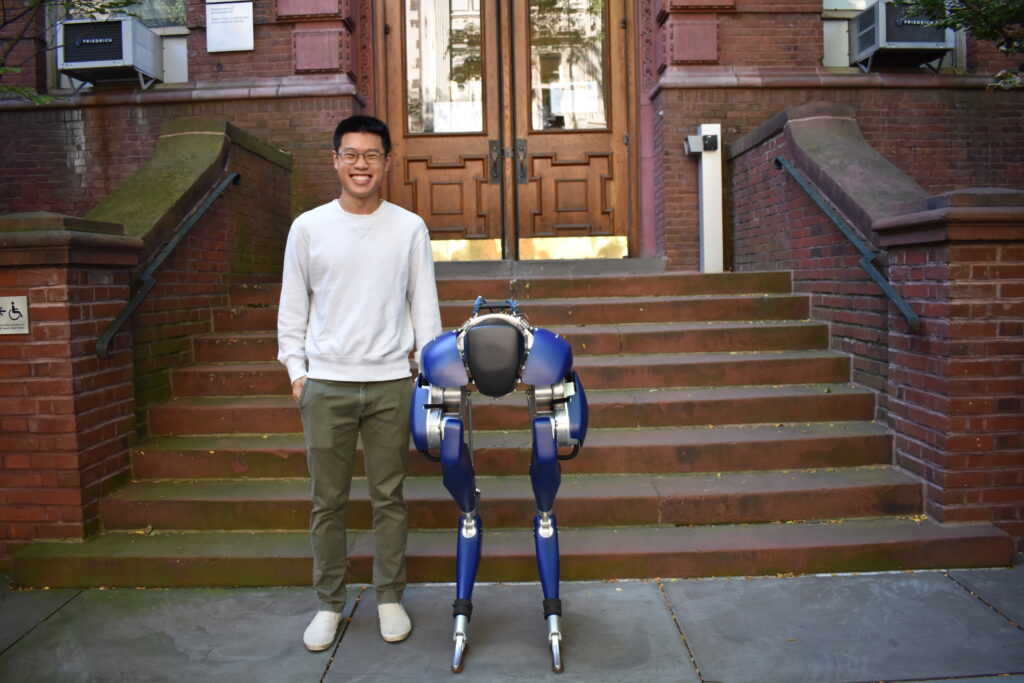William Yang has successfully defended his doctoral dissertation, “Controlling Contact Transitions for Dynamic Robots,” under the guidance of Michael Posa, Assistant Professor in Mechanical Engineering and Applied Mechanics. Yang’s research addresses critical challenges in the field of dynamic robotics, focusing on improving the control of contact interactions between robots and their environment.
Research Focus and Significance
Yang’s work tackles a fundamental challenge in robotics: achieving more dynamic and agile movements in legged robots, robotic manipulators, and humanoid robots. His research aims to bridge the gap between the capabilities of current robots and their biological counterparts, particularly in handling contact transitions during dynamic movements.
The core of Yang’s dissertation involves developing algorithms and systems to manage contact transitions gracefully. This work is crucial for advancing the field of robotics, as it addresses key limitations in state estimation, control, and planning for robots that interact dynamically with their environment.
Key Aspects of the Dissertation
Yang’s research makes several contributions:
- Robust Control for Impact Events: Yang developed a method to modify model-based feedback controllers, making them selectively robust to impact uncertainties while maintaining control authority. This approach was validated on 3D bipedal robot Cassie, demonstrating improved performance in dynamic jumping and running.
- Dexterous Dynamic Manipulation: The research explored complex non-prehensile tasks that require considering various hybrid contact modes. Yang leveraged advancements in contact-implicit Model Predictive Control (MPC) to generate contact-rich motion plans in real-time.
- Generalized Approach: Yang’s work demonstrated the ability to perform distinct tasks using the same model, without relying on reference trajectories or motion primitives, highlighting the versatility of his approach.

Personal Reflections
Reflecting on his Ph.D. journey, Yang shares, “My experience as a Ph.D. student in MEAM at Penn was incredibly rewarding – I learned a lot and worked on incredibly fun robotics projects.”
One of the most memorable moments for Yang was attending ICRA 2022, the first large in-person robotics conference after COVID. “It was amazing to catch up with old friends and meet so many people in the field,” he recalls.
Future Plans and Advice
As Yang concludes this chapter of his academic journey, he will be joining Amazon Robotics in Seattle as an Applied Scientist, focusing on motion planning and controls.
For those considering a Ph.D. at MEAM, Yang offers this advice: “You’ll be given freedom and flexibility as a Ph.D. student. It’s important to take some time to discover healthy working habits that work for you.”
Acknowledgments
Yang expresses deep gratitude, stating, “I would like to thank my advisor, Michael Posa. He has been a tremendous mentor for me in technical aspects as well as teaching me how to do principled research. I would also like to thank the Ph.D. students in MEAM and GRASP, the MEAM cohorts above mine organized practice talks for qualifying exams and everyone has created such a supportive and fun atmosphere here at Penn.”
